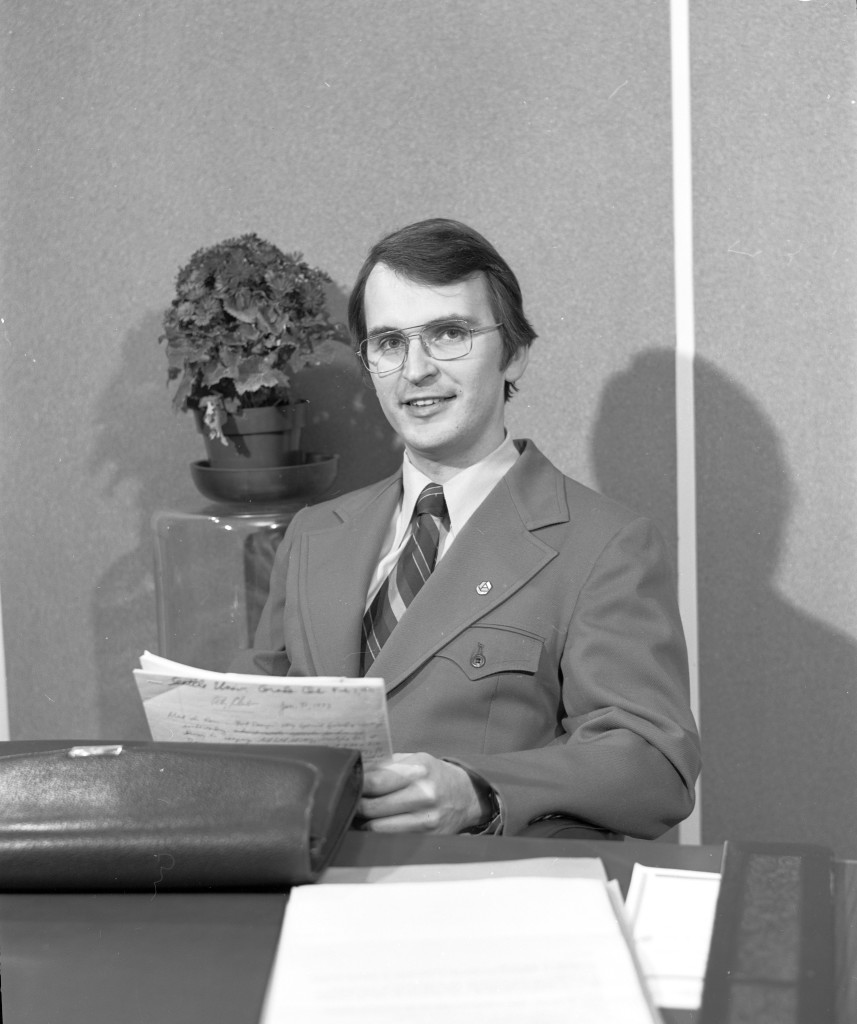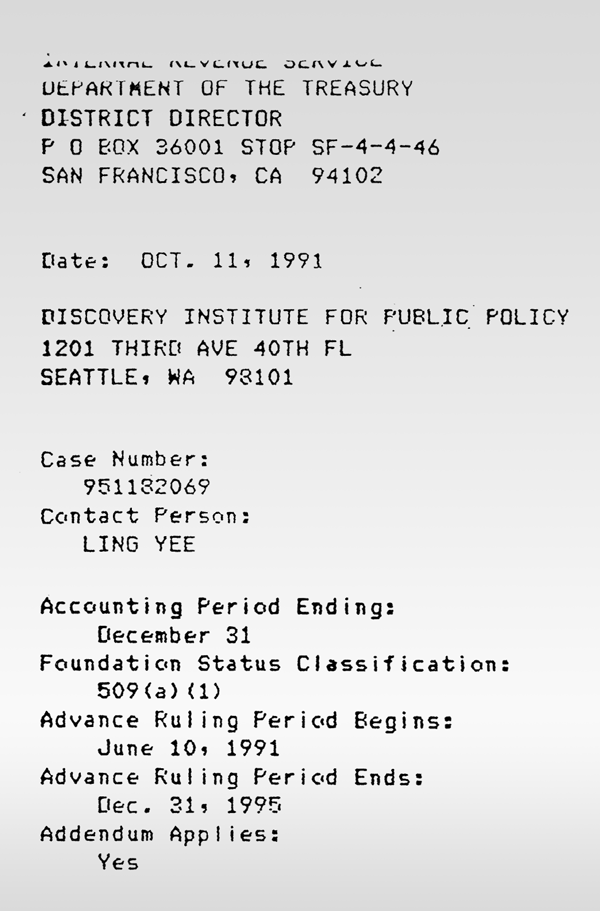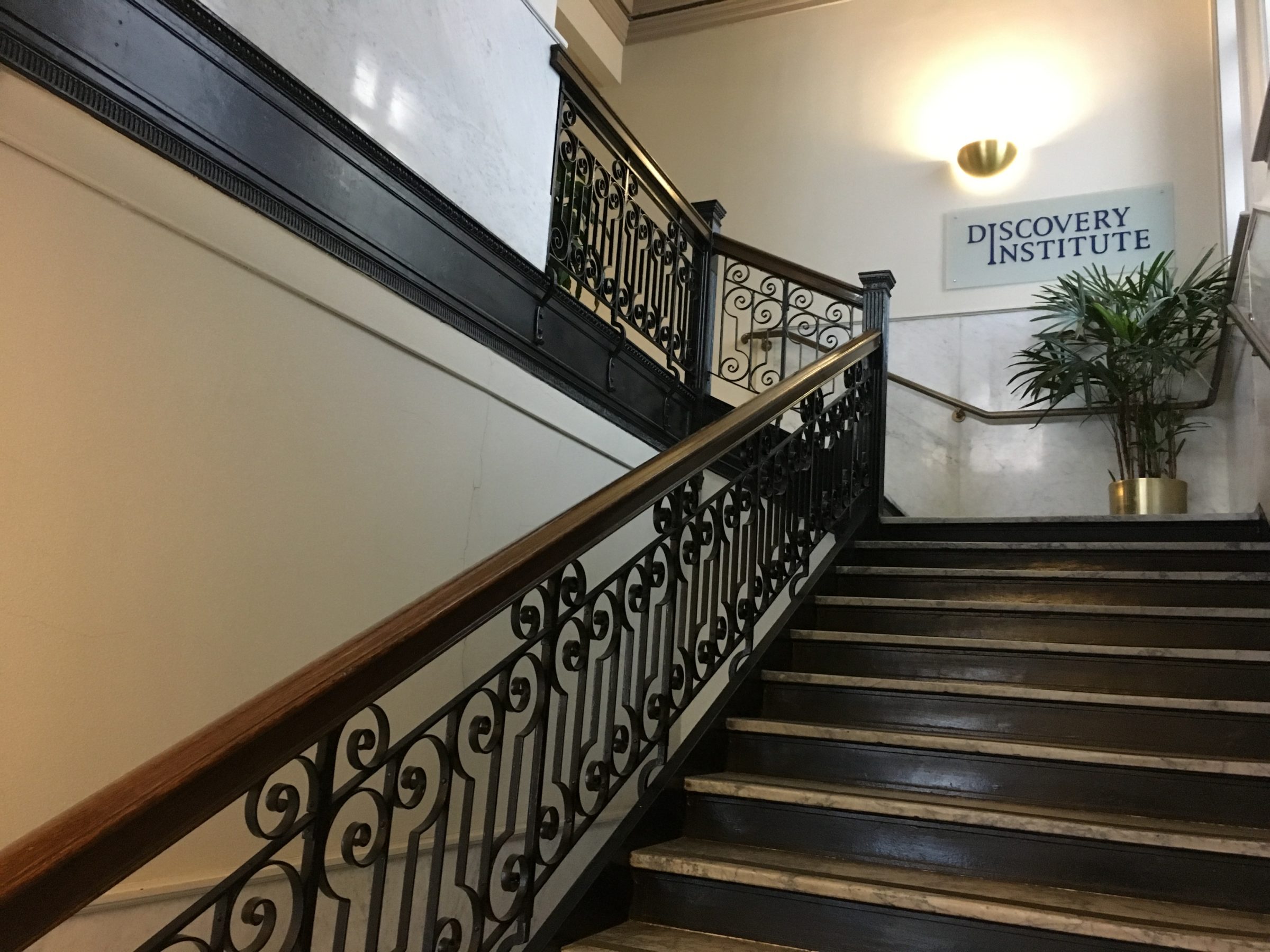More Than a Think Tank
Discovery Institute Celebrates Its 25 Year HistoryI remember a Seattle Weekly article circa 2000 — around the time that I was hired as Executive Director — that described Discovery Institute as a think tank where people “sit around a big table and think really hard.” Needless to say, the article was neither friendly, nor indicative of the role that think tanks really play in policy development. It missed a bigger point, too. Discovery Institute is more than a think tank. While we still maintain an interest in public policy, we are increasingly a cultural institution — one that examines and challenges the worldview assumptions and cultural influences that drive public policy. If policies and the culture flow like a river, we work at the headwaters. Other think tanks do admirable work in the rivers and tributaries. This unique approach is one that has developed over our twenty-five year history. For those of you who are not familiar, here is a brief retelling of that story.

Discovery Institute was conceived in the mind of our founder, Bruce Chapman, long before he and George Gilder established the organization in 1991. Bruce first envisioned a Seattle-based think tank in the 1970s, inspired in part by the formation of the Heritage Foundation in Washington, D.C. Think tanks were a new concept then, but he saw the potential to influence public policy through sound research and communication with decision-makers, opinion leaders and the general public. The realization of his vision would be forestalled, however, by his appointment and subsequent election as Washington’s Secretary of State in 1976. His service in the 1980s as the Director of the U.S. Census Bureau, as an advisor to President Ronald Reagan, and as the U.S. Ambassador to the United Nations Mission in Vienna, Austria, would delay his dream once more. Bruce returned to the United States in 1988, where he began work as a Senior Fellow at the Indianapolis-based Hudson Institute.

The fulfillment of Bruce’s vision — Discovery Institute — was born shortly thereafter, first as a Seattle branch of the Hudson Institute, and later as an independent entity. Joined in its formation by his longtime friend and Harvard roommate George Gilder, Discovery set a course to “make a positive vision of the future practical.” That early mission statement guided several research programs — technology, transportation, trade, and tourism — each reflecting our home in the Pacific Northwest. Later program additions, such as the Center for Science and Culture and the Center for Human Exceptionalism, address fundamental worldview questions. These programs present a challenge to status quo thinking, and have helped thrust Discovery into the national spotlight. Today, Discovery Institute is home to a variety of programs — economics, bioethics, education, civics, technology, science and culture — that reflect our history and guide our future. They are united by our new mission to “advance a culture of purpose, creativity and innovation.”
This unique mission separates the work of Discovery Institute from other think tanks. Generally speaking, we are less interested in a particular piece of legislation than we are in the creative power of the mind that crafted it; we see intelligent design not as a threat to scientific order but as an avenue to new discoveries; we view deference to human dignity as foundational to liberty and the pursuit of happiness; and we see challenging the status quo as a requirement of human progress. In short, we see Discovery Institute as more than a think tank. I am grateful that you do as well.
Thank you for standing with us through the years. I hope to see you at one of the many events we have planned in celebration of our Silver Anniversary!
If you would like to make a donation to Discovery Institute in honor of our Anniversary and in support of these Anniversary events, visit our online giving page.
Sincerely,

Steven J. Buri
President
